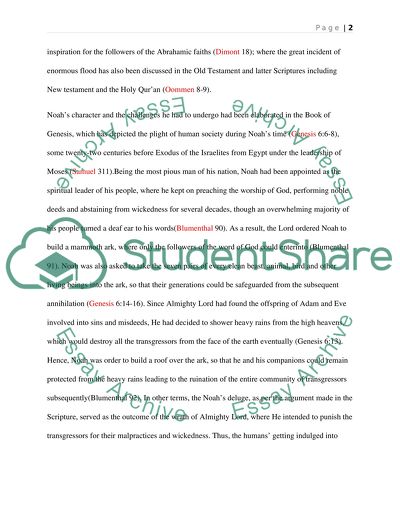Cite this document
(“Comparison of the biblical story of Noah to other ancient Near Eastern Essay”, n.d.)
Comparison of the biblical story of Noah to other ancient Near Eastern Essay. Retrieved from https://studentshare.org/religion-and-theology/1688360-comparison-of-the-biblical-story-of-noah-to-other-ancient-near-eastern-flood-storiesepics
Comparison of the biblical story of Noah to other ancient Near Eastern Essay. Retrieved from https://studentshare.org/religion-and-theology/1688360-comparison-of-the-biblical-story-of-noah-to-other-ancient-near-eastern-flood-storiesepics
(Comparison of the Biblical Story of Noah to Other Ancient Near Eastern Essay)
Comparison of the Biblical Story of Noah to Other Ancient Near Eastern Essay. https://studentshare.org/religion-and-theology/1688360-comparison-of-the-biblical-story-of-noah-to-other-ancient-near-eastern-flood-storiesepics.
Comparison of the Biblical Story of Noah to Other Ancient Near Eastern Essay. https://studentshare.org/religion-and-theology/1688360-comparison-of-the-biblical-story-of-noah-to-other-ancient-near-eastern-flood-storiesepics.
“Comparison of the Biblical Story of Noah to Other Ancient Near Eastern Essay”, n.d. https://studentshare.org/religion-and-theology/1688360-comparison-of-the-biblical-story-of-noah-to-other-ancient-near-eastern-flood-storiesepics.


